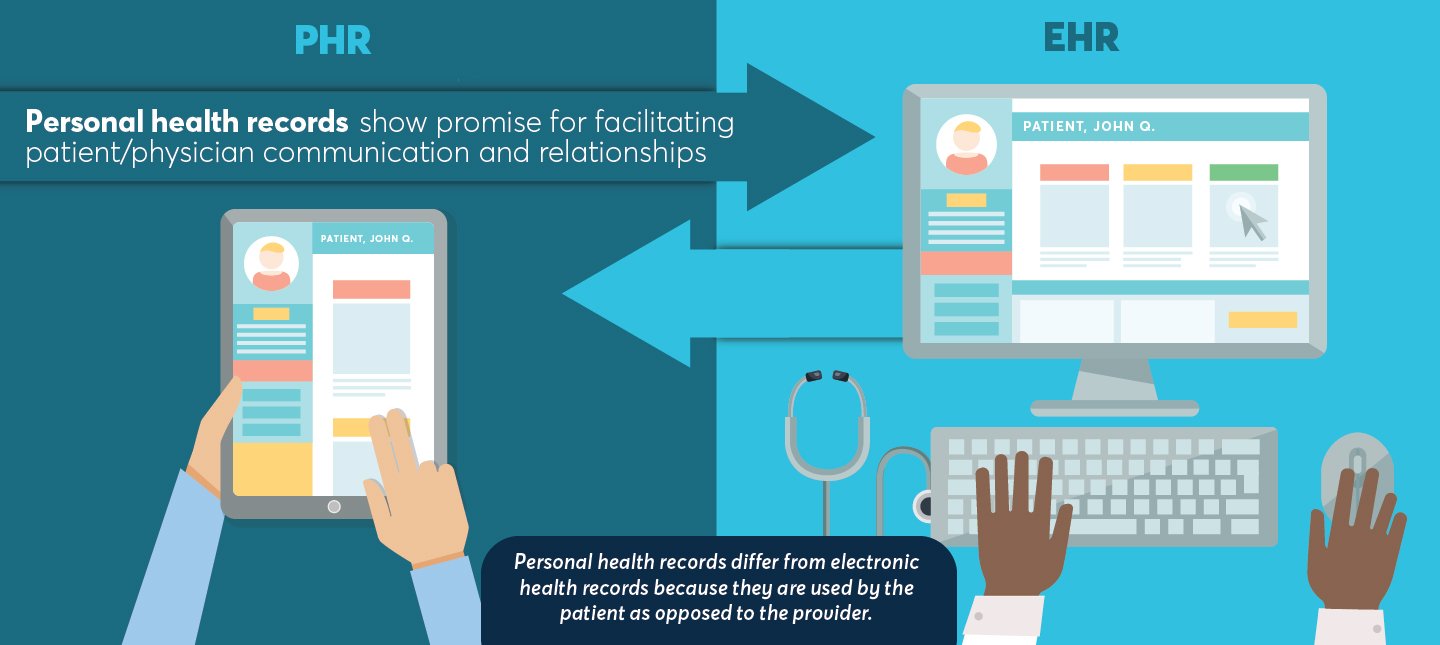Study gathered perspectives on personal health records from cancer patients and providers
Healthcare technology continues to evolve and has the potential to significantly change the relationship between providers and their patients. A study from the U.S. Department of Veterans Affairs, Regenstrief Institute and Indiana University School of Medicine analyzed perspectives on personal health records.
Personal health records are different from electronic health records because they are used by the patient as opposed to the provider. They are sometimes referred to as patient portals and allow the patient to see test results, medications and other health information.
The research team interviewed providers, patients and caregivers associated with the Richard L. Roudebush VA Medical Center about their thoughts on personal health records and how they could be used.
“During the interviews, patients expressed the potential for personal health records to deepen their relationship with their provider and to allow them to be more understood. Physicians were interested in having more clinical information sharing to facilitate better care,” said study author David Haggstrom, M.D., MAS, director of the Regenstrief Institute Center for Health Services Research, core investigator at the VA Health Services Research and Development (HSR&D) Center for Health Information and Communication (CHIC) and associate professor of medicine at IU School of Medicine. “These different visions of the value of these records show the need for discussions between physicians and patients to set expectations about the uses of PHRs.”
Both doctors and patients raised concerns about workflow.
“Patient portals have already created an additional strain on medical staff, and patients are sensitive to that. Careful thought needs to be given to how health systems and teams deploy PHRs to still provide patient-centered care,” said Dr. Haggstrom.
The next steps for personal health records involve implementing them more widely, tailoring them for specific conditions and making them more user-friendly.
Dr. Haggstrom is currently leading a five-year clinical trial using a personal health record created specifically for cancer patients. The research team will be looking at both the quality of care and the impact on the patient-provider relationship.
“Uses of Personal Health Records for Communication Among Colorectal Cancer Survivors, Caregivers, and Providers: Interview and Observational Study in a Human-Computer Interaction Laboratory” is published in JMIR Human Factors.
In addition to Dr. Haggstrom, Thomas Carr, M.D. of VA CHIC is an author. The study was supported in part by VA HSR&D CDA 07-016, the VA Advanced Medical Informatics Fellowship Program and the Livestrong Foundation.
About David A. Haggstrom, M.D., MAS
In addition to his role as director of the Regenstrief Institute Center for Health Services Research, David A. Haggstrom, M.D., MAS, is a core investigator for the U.S. Department of Veterans Affairs Health Services Research and Development Center for Health Information and Communication, Richard L. Roudebush VA Medical Center. He is also an associate professor of medicine at Indiana University School of Medicine and an affiliate member of the Indiana University Melvin and Bren Simon Comprehensive Cancer Center.
About the VA Health Services Research and Development Center for Health Information and Communication
Located at the Richard L. Roudebush VA Medical Center, the Health Services Research and Development (HSR&D) Center for Health Information and Communication (CHIC) group is a diverse cadre of researchers collaborating to transform the healthcare system, both within and outside the VA so every patient receives consistent, high-quality care.
About Regenstrief Institute
Founded in 1969 in Indianapolis, the Regenstrief Institute is a local, national and global leader dedicated to a world where better information empowers people to end disease and realize true health. A key research partner to Indiana University, Regenstrief and its research scientists are responsible for a growing number of major healthcare innovations and studies. Examples range from the development of global health information technology standards that enable the use and interoperability of electronic health records to improving patient-physician communications, to creating models of care that inform practice and improve the lives of patients around the globe.
Sam Regenstrief, a nationally successful entrepreneur from Connersville, Indiana, founded the institute with the goal of making healthcare more efficient and accessible for everyone. His vision continues to guide the institute’s research mission.
About IU School of Medicine
IU School of Medicine is the largest medical school in the U.S. and is annually ranked among the top medical schools in the nation by U.S. News & World Report. The school offers high-quality medical education, access to leading medical research and rich campus life in nine Indiana cities, including rural and urban locations consistently recognized for livability.










